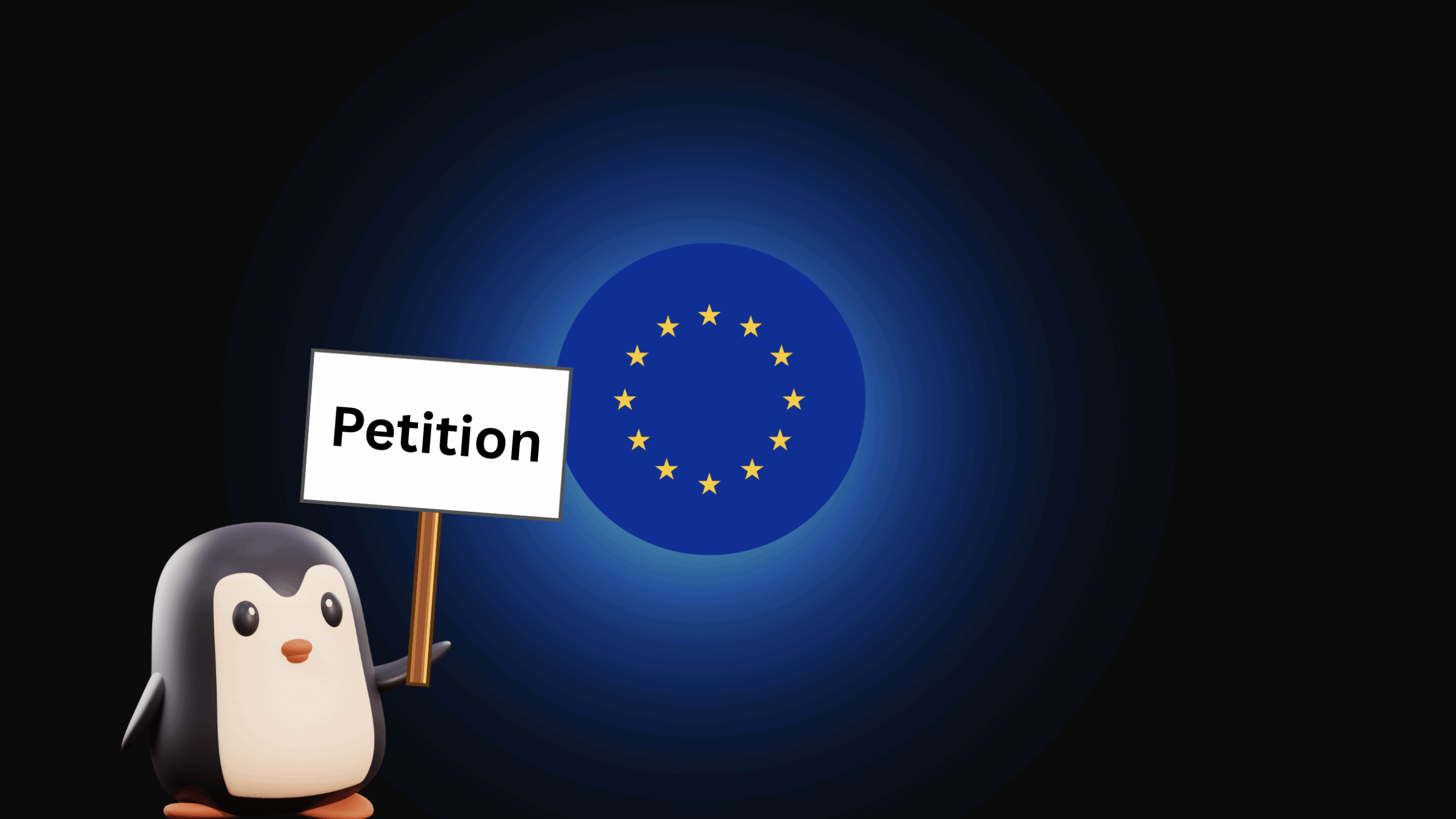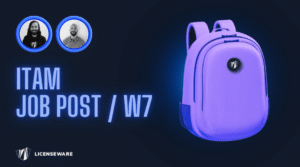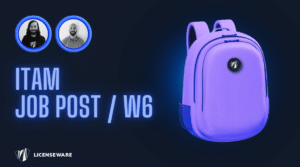From Petition to Policy: How Europe’s Call for “EU-Linux” Signals a Continental Shift Away from Big Tech Dependency

In the corridors of the European Parliament, a seemingly modest petition has captured something far more significant than its 2,474 signatures might suggest. Petition 0729/2024, calling for the development and implementation of an “EU-Linux” operating system across all European Union public administrations, represents more than just another open-source advocacy effort, it embodies a growing continental consensus that Europe’s digital future cannot remain tethered to American technology giants.
The petition, submitted by an Austrian citizen identified as N.W., calls for the European Union to “actively develop and implement a Linux-based operating system, termed ‘EU-Linux’, across public administrations in all EU Member States.” While the petition itself has been closed, its timing and substance reflect a broader European awakening to the strategic vulnerabilities inherent in digital dependency, particularly on Microsoft’s ecosystem.
This citizen-driven initiative arrives at a moment when European governments are increasingly translating digital sovereignty from policy rhetoric into concrete action. From Germany’s Schleswig-Holstein migrating 30,000 government computers away from Microsoft [2], to Denmark’s national decision to phase out Microsoft Office and Windows [3], to Switzerland’s legislation mandating open-source government software [4], the petition represents not an isolated voice but rather the crystallization of a continent-wide movement toward technological independence.
The Petition’s Vision: More Than Just Software
The EU-Linux petition goes beyond simple cost considerations, articulating a comprehensive vision for European digital autonomy. The petitioner emphasizes several key objectives: reducing dependency on Microsoft products, ensuring compliance with the General Data Protection Regulation (GDPR), and promoting transparency, sustainability, and digital sovereignty within the EU. [1]
Significantly, the petition doesn’t stop at operating systems. It advocates for the adoption of open-source alternatives to Microsoft 365, specifically mentioning LibreOffice and Nextcloud, and suggests implementing the E/OS mobile operating system for government devices. This holistic approach reflects a sophisticated understanding that true digital sovereignty requires comprehensive ecosystem transformation, not merely piecemeal software substitutions.
The petition also highlights the economic dimension of this transition, noting the potential for job creation in the IT sector through such an initiative. [1] This economic argument has proven prescient, as subsequent European digital sovereignty initiatives have indeed emphasized the employment and innovation benefits of developing homegrown technological capabilities.
A Pattern Emerges: From Individual States to Continental Movement
The EU-Linux petition gains particular significance when viewed alongside the concrete actions already being taken by European governments. Germany’s Schleswig-Holstein has emerged as a pioneer in this space, with its ambitious plan to replace 30,000 Microsoft Windows and Office government computers with Linux and LibreOffice by 2026. [2] This migration, described as potentially “one of the largest Linux-on-desktop deployments in the EU public sector,” has provided a practical roadmap that other European governments are now following.
Denmark’s announcement in June 2025 to phase out Microsoft Office and Windows in favor of LibreOffice and Linux represents the scaling of this approach to the national level. [3] The Danish decision was catalyzed by both geopolitical concerns, including reports of Microsoft allegedly locking the International Criminal Court’s Chief Prosecutor out of his email accounts following sanctions, and stark economic realities. Copenhagen’s Microsoft software bill skyrocketed from 313 million kroner in 2018 to 538 million kroner in 2023, a staggering 72% increase that exemplifies the unpredictable cost structure of proprietary software dependency. [3]
These national initiatives build upon earlier European precedents. France’s National Gendarmerie completed one of the first large-scale migrations, transitioning 37,000 desktops to Linux between 2004 and 2013, ultimately saving millions in licensing fees while gaining greater control over their digital infrastructure. [2] Italy’s Ministry of Defence has similarly replaced Microsoft Office with LibreOffice on 5,000 machines as part of a broader transition to open platforms. [2]
2025: The Year Digital Sovereignty Accelerated
The year 2025 has witnessed an unprecedented acceleration in European digital sovereignty initiatives, transforming what was once a niche policy discussion into mainstream governmental strategy. Switzerland has led this charge with legislation mandating that government-developed software be released as open source, while committing $231 million to build a national cloud service designed to keep sensitive governmental data within its borders. [4]
Perhaps most significantly, the EuroStack initiative, launched in March 2025, represents the most comprehensive European response to digital dependency challenges. [5] Commissioned by the Bertelsmann Stiftung and supported by a distinguished consortium including the Mercator Foundation and the Centre for European Policy Studies, EuroStack proposes a structured approach to reducing technological dependencies through targeted public investments, strategic procurement, and regulatory frameworks that prioritize European solutions.
The initiative’s urgency has been heightened by deteriorating transatlantic relations in the technology sphere. At the AI Action Summit in Paris and the Munich Security Conference, U.S. Vice President JD Vance delivered confrontational speeches criticizing European regulatory approaches and questioning Europe’s internal policies. [5] These tensions have crystallized European fears about the vulnerability of relying on American technology giants for critical government operations, with more than 80 percent of critical digital technologies currently sourced from outside the continent. [5]
The European Union has also launched the OpenEuroLLM project, a €37.4 million initiative to develop “truly” open source large language models covering all 24 official EU languages. [6] Co-led by computational linguist Jan Hajič from Charles University in Prague and Peter Sarlin, CEO of Finnish AI lab Silo AI, the project represents Europe’s attempt to create sovereign artificial intelligence capabilities that preserve linguistic and cultural diversity while reducing dependence on American and Chinese AI platforms.
The Economics of Digital Independence
The financial mathematics driving European digital sovereignty initiatives extend far beyond simple cost-cutting measures. Copenhagen’s experience illustrates the broader European predicament: proprietary software licensing represents not just a significant budget line item, but an unpredictable one subject to vendor pricing strategies and geopolitical pressures. [3]
The EuroStack initiative has identified three major economic pain points driving European action: fragmentation in digital infrastructure that limits scalability and cross-border collaboration; lagging strategic investments compared to aggressive U.S. and Chinese funding; and vulnerabilities in key sectors including semiconductors, cloud computing, and AI that expose Europe to economic and political leverage from foreign powers. [5]
To address these challenges, EuroStack proposes the establishment of a European Sovereign Technology Fund (ESTF) to prevent strategic firms from being acquired by non-European entities, deploy high-impact digital services through DARPA-style innovation challenges, scale innovation through Europe-first procurement policies, and strengthen sovereign AI and federated data spaces. [5]
Technical Realities and Implementation Challenges
While the momentum behind European digital sovereignty is undeniable, the technical realities of implementation present significant challenges that the EU-Linux petition and related initiatives must address. The transition from Microsoft’s ecosystem to open-source alternatives requires careful attention to user experience, file format compatibility, and system integration challenges.
LibreOffice, while functionally robust, presents different user interfaces and workflows compared to Microsoft Office, necessitating substantial investment in user training and change management. Complex documents with advanced formatting, macros, or embedded objects may experience fidelity issues during conversion between proprietary and open formats. Additionally, many government systems have been built around Microsoft’s ecosystem, particularly Active Directory for user management and SharePoint for collaboration, requiring the development of custom integration solutions or adoption of alternative platforms like NextCloud for cloud services.
However, these challenges are balanced by significant advantages that extend beyond cost savings. Open-source solutions offer unprecedented customization capabilities, allowing governments to tailor software to their specific needs rather than adapting processes to vendor limitations. The transparent nature of open-source code enables security auditing and ensures that governments understand exactly what software is running on their systems—a critical consideration in an era of heightened cybersecurity concerns.
Global Context and Strategic Implications
The European push for digital independence reflects a global trend toward technological self-reliance that extends beyond the continent’s borders. China’s development of HarmonyOS, which overtook iOS in China’s mobile operating system market by 2024, demonstrates how geopolitical tensions can accelerate domestic technology development. [2] While China’s approach involves creating entirely new platforms, European governments are leveraging existing open-source ecosystems to achieve similar independence goals.
The EU-Linux petition and related initiatives suggest several important implications for the global technology landscape. Technology vendors can no longer assume that government customers will accept arbitrary pricing increases or policy changes without considering alternatives. There will be increased demand for professionals with Linux and LibreOffice skills as more organizations make the transition. Government adoption may accelerate innovation in open-source ecosystems, potentially creating new competitive dynamics in enterprise software markets.
Conclusion: A Digital Declaration of Independence
The EU-Linux petition, while modest in its immediate impact, represents something far more significant: a citizen-driven articulation of European digital sovereignty aspirations that has found resonance in government policies across the continent. From Schleswig-Holstein’s pioneering migration to Denmark’s national initiative, from Switzerland’s open-source mandate to the ambitious EuroStack framework, Europe is systematically reducing its dependence on American technology giants.
This movement represents more than a technology migration—it constitutes a digital declaration of independence that reflects broader European concerns about technological sovereignty, cost control, and geopolitical vulnerability. As the EU-Linux petition demonstrates, this transformation is being driven not just by government policy but by citizen awareness of the strategic importance of digital independence.
The success of these initiatives will ultimately depend on Europe’s ability to balance the practical challenges of implementation with the strategic imperative of digital sovereignty. The EU-Linux petition may have been closed, but the vision it articulated, of a Europe that controls its own digital destiny, is very much alive and increasingly becoming reality across the continent.
References
[1] European Parliament. “Petition No 0729/2024 by N. W. (Austrian) on the implementation of an EU-Linux operating system in public administrations across all EU countries.” https://www.europarl.europa.eu/petitions/en/petition/content/0729%252F2024/html/-
[2] Licenseware. “From Microsoft to Open Source: How One German State is Rewriting the Rules of Public Sector IT.” https://licenseware.io/from-microsoft-to-open-source-how-one-german-state-is-rewriting-the-rules-of-public-sector-it/
[3] Licenseware. “Denmark’s Digital Declaration of Independence: A Growing European Revolt Against Big Tech Dependency.” https://licenseware.io/denmarks-digital-declaration-of-independence-a-growing-european-revolt-against-big-tech-dependency/
[4] Bitfinex. “Switzerland Leads the Push for Open Source Software and Digital Sovereignty.” https://blog.bitfinex.com/education/switzerland-leads-the-push-for-open-source-software-and-digital-sovereignty/
[5] BSt Europe. “EuroStack: The Urgency of Europe’s Digital Independence.” https://bst-europe.eu/competitiveness-innovation/eurostack-the-urgency-of-europes-digital-independence/
[6] TechCrunch. “Open source LLMs hit Europe’s digital sovereignty roadmap.” https://techcrunch.com/2025/02/16/open-source-llms-hit-europes-digital-sovereignty-roadmap/










